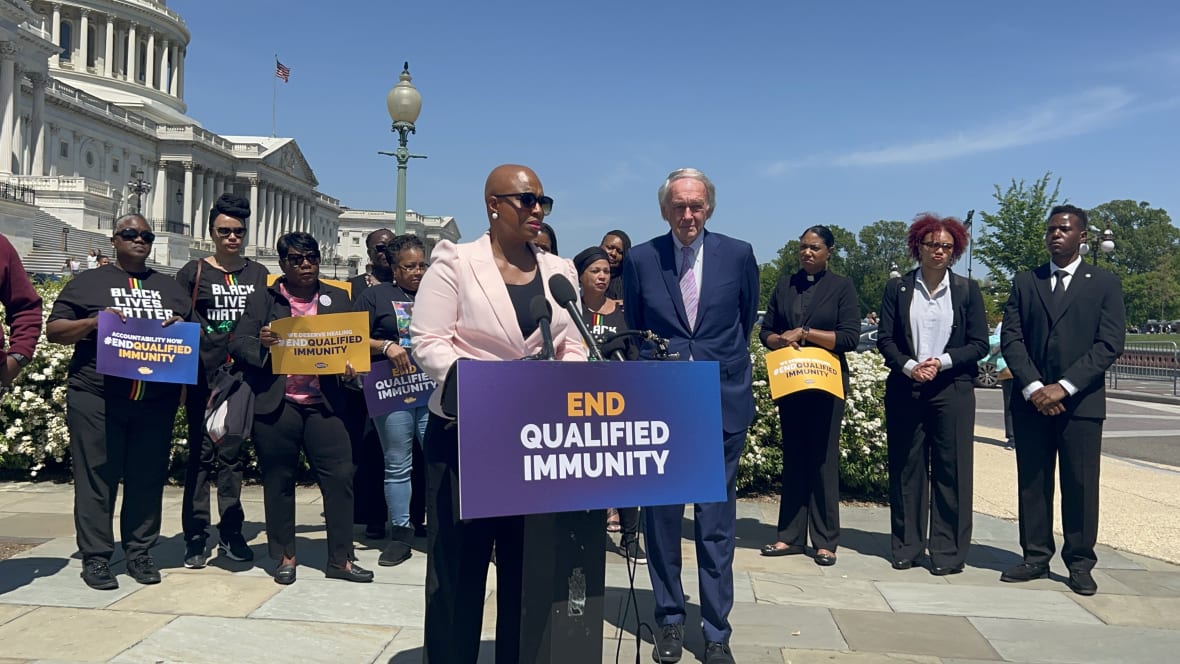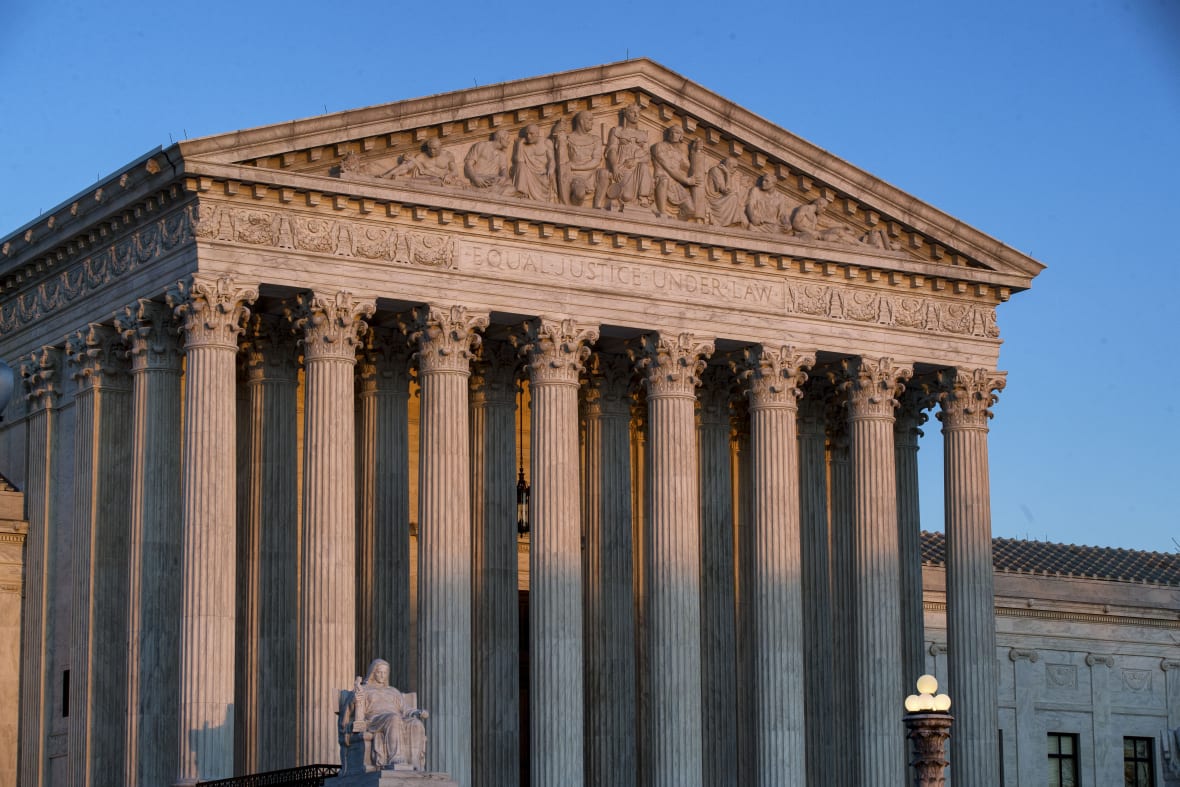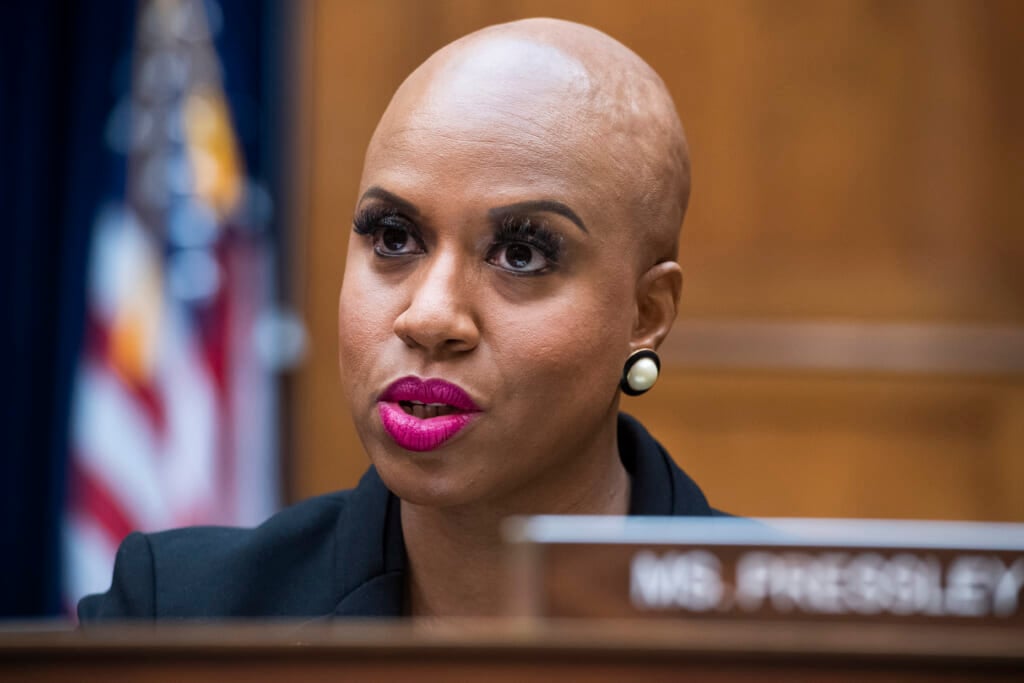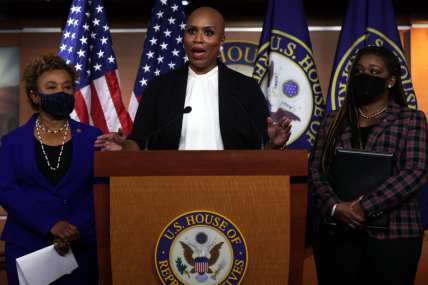Rep. Ayanna Pressley demands an end to qualified immunity
“For generations, Black Americans have been disproportionately profiled, surveyed, policed, lynched, choked, brutalized and murdered,” said Congresswoman Pressley.
Advocates have long decried the lack of accountability for police officers involved in violent or deadly encounters with civilians and called for the end of qualified immunity.
This week, U.S. Ayanna Pressley, D-MA, and Senator Ed Markey, D-MA, introduced legislation to do just that.

Both lawmakers re-introduced the Ending Qualified Immunity Act, which would strip police officers of civil liability protection and allow victims of police brutality to seek justice in the court of law.
On Wednesday, Pressley held a press conference at the U.S. Capitol building to announce the legislation, which she lifted up as racial justice issue.
“For generations, Black Americans have been disproportionately profiled, surveyed, policed, lynched, choked, brutalized and murdered,” said Pressley.
“These practices are systemic and rooted in our country’s legacy of slavery and racial terror.”
The congresswoman noted that Congress passed the Civil Rights Act of 1871 — also known as the Ku Klux Klan Act — which granted citizens the power to “sue any person acting under the authority of state law who deprives them of their constitutional rights,” including “public officials like police officers.”
Sen. Markey noted that qualified immunity is not a law, but instead a doctrine that was established by the Supreme Court in 1967, undermining the Civil Rights Act of 1871.
The Supreme Court made it so that officers would only be held accountable for their actions if the victim or victims’ family could “clearly establish” that the officer in question violated the Constitution.
As a result, lawsuits filed against officers accused of criminal abuse or murder of unarmed citizens, particularly African Americans, are oftentimes dismissed due to the qualified immunity doctrine.
However, Markey said this is contrary to what Congress intended when it passed the Civil Rights Act in 1871.

“Congress sought to empower civilians to seek justice in the face of state violence,” he asserted.
The Massachusetts senator told reporters that the law did not include providing immunity to state and local officials, “effectively shielding police officers from lawsuits brought by victims of brutality and excessive force.”
Pressley first introduced the Ending Qualified Immunity Act in 2020 with former Rep. Justin Amash, L-MI, days after the murder of George Floyd, who was killed by ex-Minneapolis police officer Derek Chauvin.
Markey and Pressley were notably accompanied by the families of Andrew Joseph III and Isaiah Lewis, two teens who lost their lives after encounters with law enforcement.
On Feb. 7, 2014, Joseph, 14, was fatally struck by a car while crossing a major interstate after Hillsborough County, Florida deputies removed him and other teens out of the Student Day at the State Fair following an alleged commotion.
Joseph’s family tried to hold the deputies accountable in his death for failing to notify them at the time that the teen was removed from the park; however, the officers were protected under qualified immunity.
“You would think that if a child had not been committing a crime, this [would] be a clear-cut case. However, there is never a clear-cut case of justice and accountability when you’re dealing with the system of policing,” said Joseph’s mother Deanna Joseph.
She continued, “Qualified immunity has been the culprit. It has been the repeat offender to the repeated perpetrators who perpetrate the murders and crimes.”
Qualified immunity became a pressing topic on Capitol Hill in 2021 when Democrats and Republicans failed to pass the George Floyd Justice In Policing Act due to differences over the bill provision to eliminate qualified immunity.

The family was later awarded $15 million in a wrongful death lawsuit; however, they say it’s not enough. The family wants to see an end to qualified immunity.
In the meantime, Markey said to move forward, “We must not wait in vain for the Supreme Court to fix its own mistake.”
He continued: “There will be no true justice until there is racial justice, and there will be no racial justice until we end qualified immunity once and for all in the United States of America.”
Pressley said she will continue to fight for justice on behalf of police brutality victims and will, “not let up until Black fathers, sons, children, women our mommas have the same rights as everyone else.”
TheGrio is FREE on your TV via Apple TV, Amazon Fire, Roku and Android TV. Also, please download theGrio mobile apps today!


